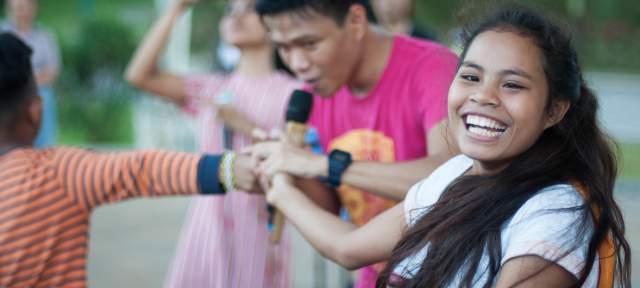Coronavirus impact on world’s indigenous, goes well beyond health threat

Lumads, a people indigenous to the Philippines, housed at the University of the Philippines in Quezon City, after being forced off their ancestral lands. Credit B.R. Villacruel
Please read original article here
I am receiving more reports every day from all corners of the globe about how indigenous communities are affected by the COVID-19 pandemic and it deeply worries me to see it is not always about health issues”, said José Francisco Cali Tzay.
A statement Monday, the Special Rapporteur - a Maya Kaqchikel from Guatemala who took up his post on 1 May – urged Governments worldwide to ensure that indigenous peoples have access to information about COVID-19 in their languages.
Cultural considerations
Urgent special measures must also be put in place to ensure availability and access to culturally appropriate medical services, he added, emphasizing that public health facilities are often too scarce in indigenous communities.
The rights to development, self-determination and lands, territories and resources must also be guaranteed, in order for indigenous peoples to manage the crisis and advance sustained development and environmental protection.
Mr. Cali Tzay said that in many countries, states of emergency are exacerbating the marginalisation of indigenous communities - and in the most extreme situations, militarisation of their territories is taking place.
“Indigenous peoples are being denied their freedom of expression and association, while business interests are invading and destroying their lands, territories and resources”, he said.
Riding roughshod
In some countries, he stated, consultations with indigenous peoples – as well as environmental impact assessments - are being abruptly suspended in order to force through megaprojects relating to agribusiness, mining, dams and infrastructure.
Coronavirus Portal & News Updates
Readers can find information and guidance on the outbreak of the novel coronavirus (2019-nCoV) from the UN, World Health Organization and UN agencies here. For daily news updates from UN News, click here.
“Indigenous peoples who lose their lands and livelihoods are pushed further into poverty, higher rates of malnutrition, lack of access to clean water and sanitation, as well as exclusion from medical services, which in turn renders them particularly vulnerable to the disease”, he said.
Indigenous communities that have managed to best resist the COVID-19 pandemic are those that have achieved autonomy and self-government, which allows them to manage their lands, territories and resources, and ensure food security through their traditional crops and traditional medicine, he noted.
“Now, more than ever, Governments worldwide should support indigenous peoples to implement their own plans to protect their communities and participate in the elaboration of nationwide initiatives to ensure these do not discriminate against them”, he said.
The collective good
He added: “The pandemic is teaching us that we need to change. We need to value the collective over the individual and build inclusive societies that respect and protect everyone. It is not only about protecting our health.”
Special Rapporteurs, appointed by the Geneva-based Human Rights Council, are independent experts within the United Nations human rights system who address either country-specific situations or thematic issues in all parts of the world. Serving on a voluntary basis, they are not UN staff members nor do they receive a salary for their work.
Mr. Cali Tzay was previously the four-term President of the Committee for the Elimination of all forms of Racial Discrimination, which oversees the implementation of the International Convention on the Elimination of All Forms of Racial Discrimination. The founder of several indigenous organizations in Guatemala, he also once served as his country’s ambassador to Germany.
Related Project:
Categories
Latest news
- LifeMosaic’s latest film now available in 8 languages
- การเผชิญหน้ากับการสูญพันธุ์ และการปกป้องวิถีชีวิต (Thai)
- LANÇAMENTO DO FILME BRASIL : Enfrentando a Extinção, Defendendo a Vida
- Enfrentando la Extinción, Defendiendo la Vida (Español)
- Peluncuran video baru dalam Bahasa Indonesia : Menghadapi Kepunahan, Mempertahankan Kehidupan


